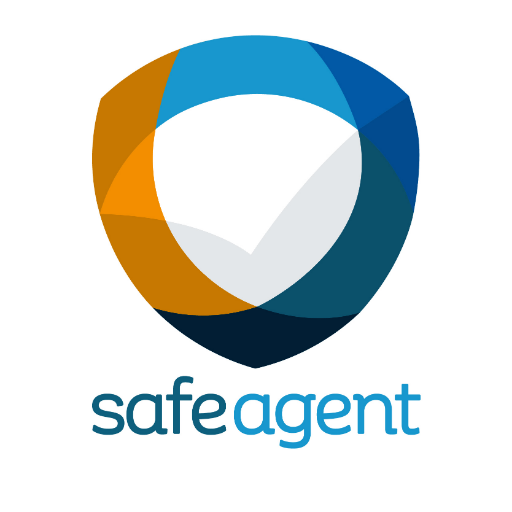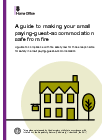Copyright © 2024 Landlord Direct.
Holiday letting service for your second home in the Cotswolds
It makes sense to earn a rental income from your holiday home in the Cotswolds to help with the running costs and maintenance expenditure. We have an easy to use and low cost letting service to help second home owners organise their guests who are usually, friends and colleagues. We also offer an advertising service utilising airbnb and other major channels if required. We understand that you will want to be selective when renting out your holiday home & also have control over how many bookings you wish to consider. Our staff are on hand to offer you the advice and assistance you need to set up & run your holiday let property.
Monthly rentals & short term lets - Cotswolds
Experienced l short stay and holiday let agent , with flexible and cost effective support services for your property. We understand how to complement your existing short stay business, and we build up excellent working relationships with our clients
Complete short let booking & compliance service.
Is your current letting platform fully up to regulatory standards and offering you a Rightmove / Airbnb / Vrbo/ Booking.com package ?
- Airbnb / Vrbo / Booking.com
- Smart pricing optional
- Rightmove attracting extended stays
- Land Registry check
- Fire Risk Assessment easy online
- Visitor Ready national registration
- Full back up service from experienced staff
7% plus vat (everything included)
We set out an annual letting strategy for your property by running your short let bookings in conjunction with our extended stay service, so getting the best of both worlds, take advantage of peak holiday lets via Airbnb, Vrbo, Booking.com etc and then attract longer monthly stays in lower booking seasons, via Rightmove advertising.
-2.png)
 .
.
National short let service
Landlord Direct offer a specialist short term rental service, to those looking to increase bookings for their short / holiday let properties.
We are not an automated online letting platform, but a busy lettings team on hand to assist our landlord clients. This is the ideal service if
- You do not want to let to long term ' sitting' tenants - stay in control of your property.
- You operated a registered urban short lets and want to attract extended stays
- You operate registered holiday lets and want to increase low season ‘ winter lets’
- You wish to let your main or sole home for up to 90 days per annum.
Send us your property details below and we will contact you to discuss short let options - without obligation:
Please send us some pictures of your holiday cottage by using our image uploader
Our image upload will automatically resize your photos and then email them to us.
For further information please contact Landlord Direct
Tel: 07951 712 958 please ask to speak to our director Mark Hutchings.
Holiday Let Safety;
Need An Energy Performance Certificate - Legal Requirement
All holiday cottages must now have an EPC Energy Performance Certificate, they typically cost around £60 and last for 10 years. See National database.
Need Smoke Alarms or Carbon Monoxide Alarms Fitting - Legal Requirement
Read up to date fire health and safety requirements :
Landlord Gas Safety Certificates - Legal Requirement
Whether Calor or Mains gas, it is a legal requirement for holiday cottage owners to obtain a 'Landlord Gas Safety Certificate' carried out by a Gas Safe engineer annually.
Calor Gas Suppliers
For Calor Gas ref-fills or to set up new storage tanks or the supply of Calor cookers.
Electrical Certification & PAT Testing
We would recommend that you obtain a 5 year periodic electrical certificate for your holiday let, and arrange for all portable electrical items PAT tested annual.
Open Fires & Log Burners
Make sure all flues and chimneys are swept at least annually and keep the receipt or certificate. Visually check the condition of log burner flue seals and arrange for repairs of you feel they may need resealing. An air vent in an external wall in the same room as the log burner should be in place, and a carbon monoxide alarm as mentioned above. If you intend letting your property to families we would suggest that you supply a fire guard to open fires and log burners.
Fire Risk Assessment
Landlord Direct will write a fire risk assessment for our holiday let managed clients if it is a standard holiday cottage this should be a straight forward matter. mark@landlorddirect.com
Fire Blanket
We recommend that a fire blanket be fixed to the kitchen wall in a position between the cooker and internal entrance door.
Holiday Let Insurance
Holiday let property must have a specialist insurance policy in place, general buy to let insurance is unlikely to cover the holiday let 'short stay' use. There are therefore specialist insurance brokers out there who are set up to secure you the correct insurance policy on good terms. Apart from insuring the actual fabric of the building, these policies protect cottage owners against Public Liability claims, absolutely essential when you have paying guests staying.
Authority From Lender
You may already have purchased your property on a Buy to Let mortgage, however if you have a lender for the property , please check with them that you are able to let out the property as a Furnished Holiday Let as this could affect your insurance policy.
Immigration (Hotel Records) Order 1972 - Keep Records Of Your Bookings
The Immigration Order places a legal duty on all owners or the managers of all serviced and self-catering accommodation to keep a record of the name of all guests over the age of 16 years old and to take a note of their on-going destination usually their home address, for at least 12 months. The Landlord Direct booking service is designed to capture this needed information and we keep appropriate records.
The Equality Act 2010
Although some holiday cottage owners do not allow pets, under the Equality Act all holiday cottage owners cannot refuse a booking from a registered blind person accompanied by their guide dogs. Further the act states owners should do anything that is practically reasonable to assist a disabled guest.
Bunk Beds Regulations
prohibit the supply of bunk beds which could cause a child to be injured or killed, as a result of their becoming wedged or trapped. A bunk bed must not have any: • gap in the bed base greater than 75mm (approx. 3”) • gap elsewhere which is less than 60mm (approx. 2.5”) or more than 75mm Any gap permitting access to the raised bunk should only be in the safety barrier on one of the long sides of the bed, and be of a minimum width of 300mm (12”). Note: The safety of mattresses is discussed separately in the section on upholstered furniture. By means of simple measurement, you should be able to make sure whether a bunk bed satisfies the ‘gap’ requirements detailed above. If you are in any doubt about a particular gap size, you should contact your local Trading Standards Service to arrange for more accurate measurements to be made with a special probe. The general safety of bunk beds can be simply tested by checking for such things as stability, rigidity, sharp edges etc. Some bunk beds may also be marked with a British Standard number. This is currently BS EN 747.
Furniture Regulations
Most holiday cottage owners will by new furniture and soft furnishings which will have to meet up to date regulations, however older furniture should always be checked.
make sure all your furniture and furnishings meet the regulations. They must carry an appropriate permanent label at point of sale.
- Keep all purchase receipts – be extra careful if buying used furniture.
- It is safest to buy new from a reputable retailer.
- It is an offence for retailers to sell no-complying items.
- If in doubt, consult your local Trading Standards Office.
What do the Regulations Say?
As from 1st January 1997 all furniture in tenanted residential property must comply with the 1993 amendments to the Furniture and Furnishings (Fire) (Safety) Regulations 1988 which extends the scope of the Consumer Protection Act 1987 (CPA). This covers the supplying (hiring or lending) of specified goods (upholstered furniture and certain furnishings) “in the course of business”.
A landlord letting her own home over an extended period, perhaps to different tenants, would be deemed to be “letting in the course of business” and would need to comply. We would therefore strongly recommend that anyone, regardless of whether they see themselves as running a business or not, should make absolutely sure they are complying with these regulations.
Prescribed Items
The regulations apply to:
- Arm chairs, three piece suites, sofas, sofa beds, futons and other convertible furniture
- Beds, Bed bases and headboards, mattresses, divans and pillows
- Nursery furniture
- Garden furniture which could be used indoors
- Loose, stretch and fitted covers for furniture, scatter cushions, seat pads and pillows
Excluded Items
- The regulations do not currently apply to:
- Antique furniture or furniture manufactured before 1950
- Bed clothes and duvets
- Loose mattress covers
- Pillowcases
- Sleeping bags
- Curtains
- Carpets
Compliance
Furniture which complies carries a manufacturer’s label which must be permanent and non-detachable.
All upholstered items must have fire resistant filling material.
All upholstered items must pass the “match resistance test” as prescribed.
All upholstered items must also past the “cigarette test” as prescribed.
Bed bases and mattresses are not required to bear a permanent label but compliance will be indicated if the item has a label stating that it meets BS7177
Legionella Checks
“someone who rents out a building or accommodation” including holiday cottage owners have a responsibility to prevent and risk control exposure to Legionella.
The best solution is to pay a specialist contractor to carry out a Risk Assessment. If it reports a low risk it is unlikely you will need to re-assess annually perhaps every 5 years or of there is a material change
Window Blind Cords
Window blind cords need to be fixed high enough off the ground to prevent young children being at risk, this is a legal requirement for all rental property some blinds are fitted with a easily detachable catch.
Safe Use Of Cleaning Substances
Always store cleaning products and chemicals in a place that cannot be reached by children. Do not store cleaning products in base kitchen units or low level cupboards. Ideally let your cleaners bring their own cleaning products , and do not store any products in your holiday let, apart from washing up liquid and bathroom soaps.
V.A.T.
Most holiday cottage owners, will not derive a turnover of more than £ 82,000 per year , and so will not have to charge V.A.T.
Holiday Let Agreement Owner webpage Booking Calendar Norfolk Inspections

